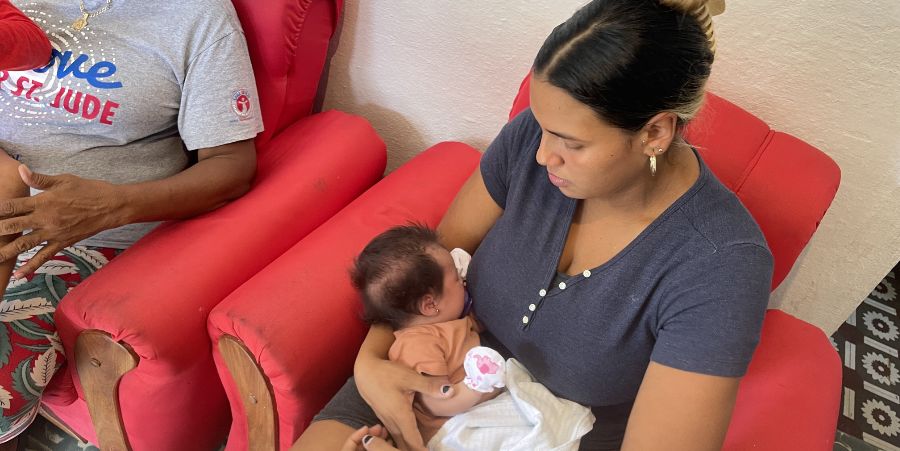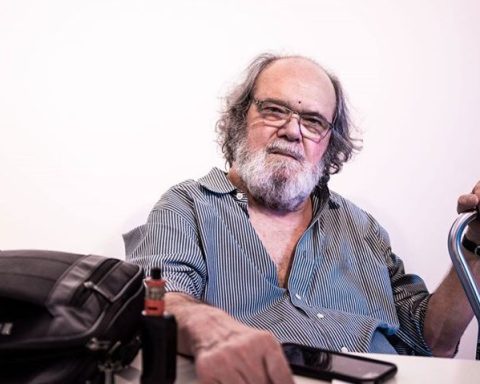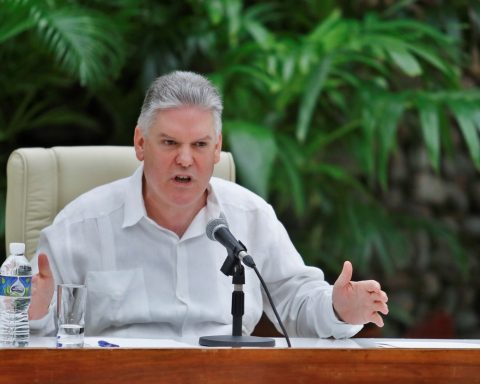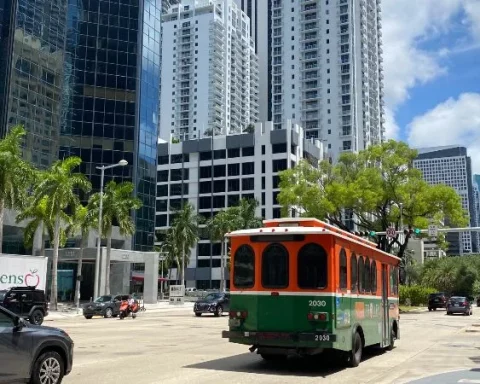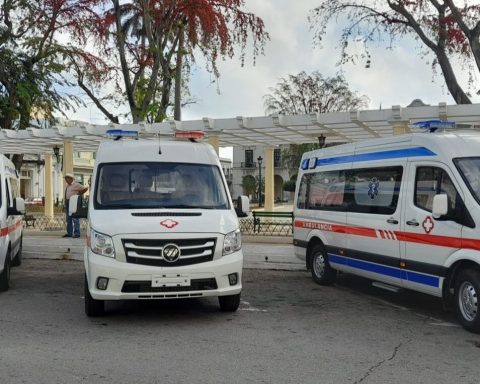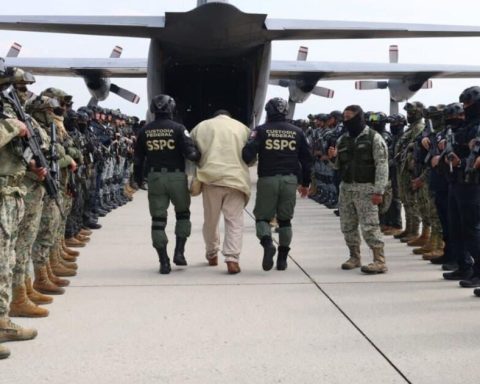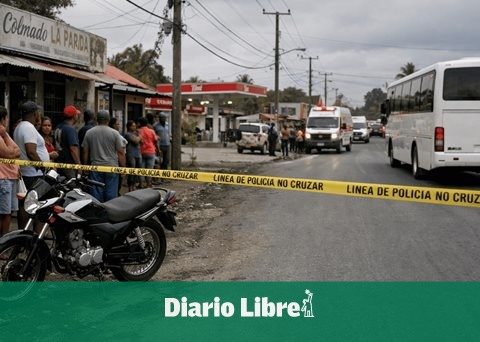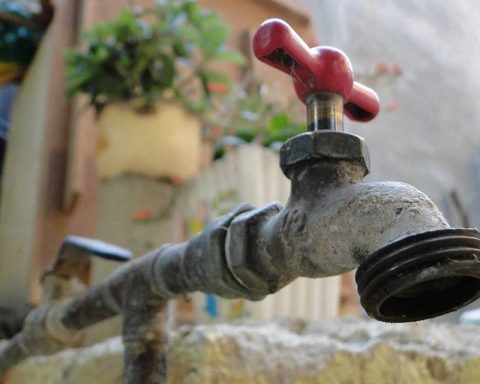HAVANA, Cuba. – Political prisoner Lisdani Rodríguez Isaac became pregnant when she least expected it. At the beginning of the year they gave him the news, and the first and only option they offered him was abortion. For about a month, State Security officials pressured her to do so. “Think about how many years you have left to turn,” they told him. But Lisdani decided to have her baby.
“I thought that I was already 25 years old, that I had been in prison since I was 22 and that I would be released from prison at 30. I didn’t want to have to wait so long to be a mother; “If my baby arrived at this moment, it must be for a reason,” he told CubaNet.
The young woman is serving an eight-year prison sentence for participating in the protests on July 11, 2021 in her hometown, Placetas, province of Villa Clara. After several months suffering risks in your pregnancy Due to the poor food and conditions in the Guamajal prison, at the end of May the authorities granted him a extra-penal license for one year.
On September 6, she gave birth to her baby without complications. When I visited her, the girl was just over 20 days old, she was staying at one of her sisters’ house because it was rainy days and her home, located in a low area, usually floods. Lisdani had a withered and disoriented look, common in prisoners recently released from prison; perhaps she was also still overwhelmed by childbirth, the precarious conditions of the hospital, and Cuba.
While holding her baby in her arms, she recalled – in this, her first interview – the last three years, her participation in the 11J demonstrations and how, along with her sister, she was unjustly imprisoned.
The lesson
Placetas was one of the three towns in the province of Villa Clara where the 11J protests broke out. In the videos you can see hundreds of people who took to the streets that day, where they shouted slogans such as “Homeland and Life”, “Díaz-Canel singao”, “Down with Fidel”, “Down with the dictatorship” and “Freedom”.
“Everything was peaceful,” says Lisdani. Although there were violent clashes between protesters and police forces, “the violence always came from them [oficiales de la Policía política]”.
The young woman, then 22 years old, says that she and her friends returned to their homes, but they met at night to plan a new protest the next day. On July 12, his house woke up surrounded by uniformed police and State Security officers in cars and motorcycles.
Lieutenant Colonel Héctor de la Fe Freyre, then delegate of the Ministry of the Interior (MININT) in Placetas, insisted that Lisdani and his sister Lidiani surrender.
“I told them that if I didn’t have an arrest warrant, they should leave, and they did. Afterwards we decided to leave the house for a few days to protect my mother and my niece; We also hid out of fear, because there were comments that they were entering the houses at night to kidnap the protesters,” he recalls.
The officers went several times to ask their mother about them until the sisters decided to turn themselves in. That Saturday, July 17, they published a video in which they explained that they would go to the police station and that they held Héctor de la Fe responsible for what happened to them.
Rodríguez Isaac also says that they arrived at the Placetas police station and, without saying a word, they were both handcuffed and taken to the cell.
“Those days were terrible, there were several women in that semi-dark cell, we barely fit in, nor did we have drinking water. “Héctor threatened me with jail, he told me that they would accuse me of six crimes,” he said.
The sisters remained separated until July 20 when they were taken to Guamajal prison.
For the alleged crimes of “attack”, “contempt” and “public disorder”, the Prosecutor’s Office asked them for 10 years of deprivation of liberty. In March 2022, they were sentenced to eight years in prison.
Some 16 Placetas protesters were also sentenced to prison terms of between six and ten years.
“The trial was a lie, a setup by State Security in which even our witnesses were dismissed; It was a lesson,” says Rodríguez Isaac. “When I found out the sentence it was very hard,” he admits.
“These three years have also been very hardit is very hard to lose your youth there [en prisión] for something you haven’t done; But I prepared myself psychologically and I am firm, without lowering my head,” he added.
In prison, the young woman has suffered humiliation and has had to share a cell with common prisoners, one of them convicted of murder.
Peas with weevils, burnt croquettes and moldy bread were some of the foods they gave him in prison. She and the rest of the inmates lacked water; They also did not have medication to combat the parasites caused by washing themselves with dirty water.
“While pregnant, one of the guards prevented me from leaving the cell to have breakfast. I felt very bad and what she did was mistreat me and offend me, the smallest thing she said to me was: ‘there you go, my son is fine in my house.’ Telling that to a pregnant woman, in those conditions and who cannot defend herself, is with the purpose of stressing her and harming her,” he said.
Without lowering your head
Before 11J, Lisdani Rodríguez Isaac was a teacher at Enrique Hart Elementary School, in Placetas. She had never before had problems with the authorities nor had she been active in a political or opposition organization, but she also did not agree “with this system because it was clear that it does not work.” It was on 11J that he had the opportunity to express himself freely.
“What they didn’t like is my attitude, they [los agentes de la Seguridad del Estado] They wanted me to lower my head. Héctor wanted to see me cry, to make me regret it, he wanted me to say that I had gone out to the demonstration and that it was a conga. “I refused to do it, I recognized that I had gone out to the demonstration because it is a right, not a crime.”
Lisdani is happy for her baby, but she knows that in a few months, as soon as her extra-penal license expires, they will be separated: she will return to Guamajal prison and her baby will be in the care of her mother, Bárbara Isaac.
“If I have to go to prison when the girl is eight months old, I will not be separated from her until she is at least a year old, so they will have to create the conditions in prison for me to be with my daughter until I have to hand her over to “My mom,” he says.
Her mother already has her other granddaughter, Nazli, Lidiani’s daughter, under her care, who is also serving a sentence for the 9/11 protests. Six-year-old Nazli thinks her mother is working in a cookie shop so she can bring her lots of sweets. In a few months, little Lía will also be separated from her mother for at least four years.
“It hurts me because my mother is going to be alone. I know what I’m facing, but it’s still difficult, the separation from my daughter will be the worst,” he ends up saying with tears in his eyes.
